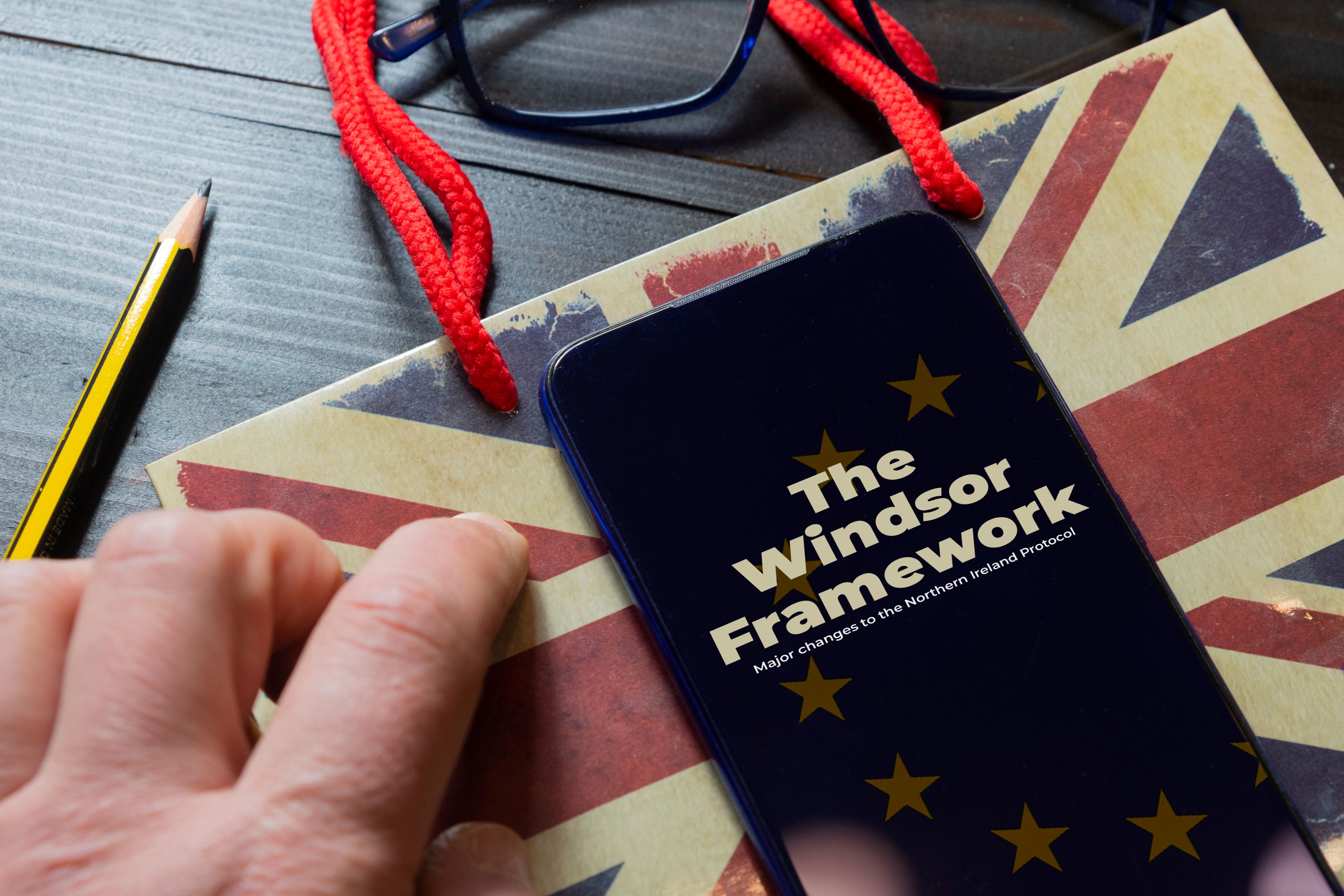
Trading rules under the Windsor Framework could still be “burdensome” for some businesses and need more work despite being a “clear improvement” on the current system, a House of Lords sub-committee has said.
The Sub-Committee on the Protocol on Ireland/Northern Ireland released a report today (25 July) on the agreement reached between the UK and EU in February 2023, which was aimed at “fixing” issues surrounding the Northern Ireland Protocol.
While the Framework has been formally signed off by the government, many of the provisions have not yet come into effect.
The report identifies several areas where more clarity is needed, while praising aspects of the improved relationship between the EU and UK.
‘Red’ and ‘green’ lanes
One key change introduced with the Framework was the ‘green’ and ‘red’ lane system for GB-to-NI trade, with goods traveling only to Northern Ireland using the green lane and enjoying reduced customs checks.
This, and other changes to agri-food trade, were broadly welcomed by industry as being positive for the movement of goods across the border, accompanying by a sense of optimism that the EU would be more flexible in the future, according to some witnesses.
However, retailers not able to meet the green lane requirements would see their goods moved via the red led, which could be “more burdensome than the Protocol as it has operated to date, with the various grace periods and easements in place,” according to the Committee’s conclusions.
No labels
Plans over a UK-wide labelling scheme also invited significant concern from businesses.
Andrew Opie, director of food and sustainability at the British Retail Consortium, said there was not “sufficient detail” about how the labelling system would work, while other witnesses warned of the “severe” impact it could have, particularly on smaller retailers
The first phase of the labelling system is due to be brought in in October 2023 in the first phase of the Retail Movement Scheme and will only affect meat and some dairy products moving into Northern Ireland. Later phases will expand it to cover other products and goods circulating in Great Britain as well as Northern Ireland.
Other potentially contentious aspects of the trading relationship, including pharmaceutical goods and new rules on VAT, were broadly welcomed amid calls for more clarity and information.
‘Improvement’
The committee invited the government to respond to these criticisms and clarify a number of areas.
Chair of the Sub-Committee, Lord Jay of Ewelme, said the Windsor Framework was “a distinct improvement” on the original Protocol, but added it does not “solve all the problems which the Protocol raises.”
“The government and EU need to remain closely in touch with each other. But they must also ensure that Northern Ireland stakeholders are closely engaged throughout.”



